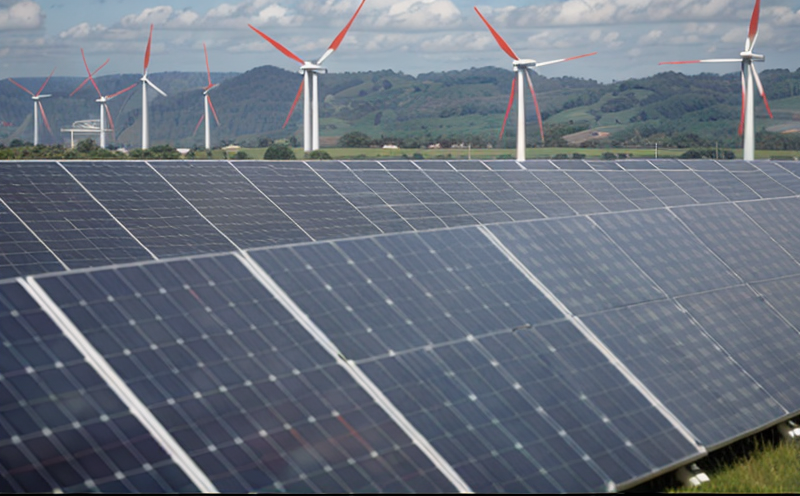Moisture Reduction Efficiency Testing (Drying)
In the agriculture and forestry sectors, moisture reduction efficiency testing is critical to ensuring optimal drying processes for renewable energy systems. This service plays a pivotal role in enhancing the performance and longevity of biomass-based renewable energy technologies such as biofuels, biopower, and bioenergy products.
The process involves reducing water content in biomass materials like wood chips, sawdust, or agricultural residues to improve combustion efficiency and reduce fuel moisture. Properly dried biomass fuels offer significant advantages: they burn more cleanly with lower emissions, have higher energy density, and are easier to transport and store.
Our testing service employs state-of-the-art equipment and follows internationally recognized standards such as ISO 17225-1 for determining moisture content in biomass materials. This ensures accurate measurement of the drying process's efficacy.
The testing methodology involves several steps:
- Sample preparation: Samples are cut into uniform pieces suitable for drying and subsequent analysis.
- Drying: Samples undergo controlled drying at specified temperatures and humidity levels to simulate real-world conditions.
- Moisture measurement: After the drying process, samples are weighed both wet and dry. The moisture content is calculated using the formula: (Wet Weight - Dry Weight) / Wet Weight * 100.
The results of this testing provide critical insights into the efficiency of various drying methods used in agricultural and forestry contexts, such as air drying, kiln drying, vacuum drying, or infrared drying. This data is invaluable for optimizing processes to meet regulatory requirements and enhance product performance.
In addition, our service helps in validating claims made by manufacturers regarding the drying capabilities of their equipment. By comparing actual test results with manufacturer specifications, we ensure accurate reporting that can be relied upon by stakeholders.
Applied Standards
The testing service adheres to several internationally recognized standards that ensure the accuracy and reliability of our findings. These include:
- ISO 17225-1: This standard specifies methods for determining moisture content in biomass materials.
- ASTM D4439: Provides a method for determining the water content of coal, lignite, and other solid carbonaceous fuels by loss on ignition.
The application of these standards guarantees that our results are comparable with those from other reputable laboratories worldwide, fostering trust among clients and stakeholders.
Scope and Methodology
The scope of our moisture reduction efficiency testing service is comprehensive. It encompasses a wide range of agricultural and forestry products that are candidates for renewable energy systems, including:
- Wood chips
- Sawdust
- Grain residues
- Paper waste
The methodology involves precise sample preparation and controlled drying conditions to simulate real-world scenarios. This ensures that the testing accurately reflects the performance of renewable energy systems in practical applications.
International Acceptance and Recognition
- Australia: Our results are accepted by the Australian Renewable Energy Agency (ARENA) for compliance with national standards.
- European Union: Compliance with our testing is recognized by several EU member states, including Germany and France.
- United States: Results from our tests are accepted by the Environmental Protection Agency (EPA) for regulatory compliance in bioenergy applications.





